October 31, 2011
DO SO, AT ONCE
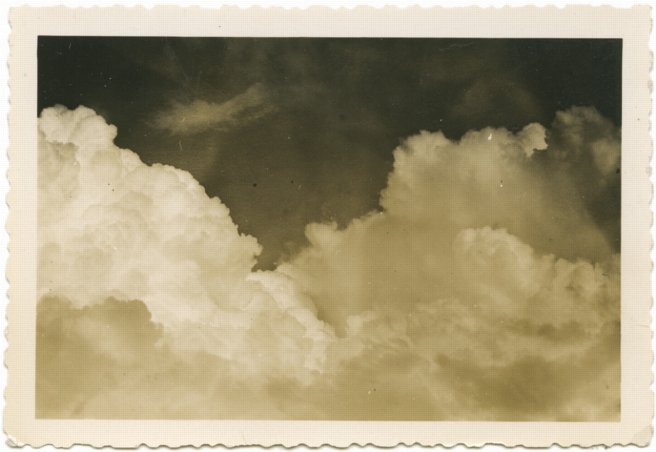
A Tribe Called Quest - "Can I Kick It". [buy]
"But they can't do this," shrieked Lou Reed. "It's my song! They're just taking my song?"
"Are they really, Lou?" said the Buddha.
"Yes! Listen to it! It's 'Walk on the Wild Side.' It's just 'Walk on the Wild Side.'"
"Only here and there," replied the Buddha.
"What?"
"It's only 'Walk on the Wild Side' here and there. The sample isn't used everywhere."
"But at the beginning and the end," Lou Reed said, "it fills up everything and--"
"It's not even 'Walk on the Wild Side,'" the Buddha went on. "It's the bassline. Did you play the bassline?"
"Herbie played the bassline."
"So it's like Herbie's playing on this song."
"But he's not! He didn't! He played on my song! Why-- Why are you putting it on again?"
"Listen Lou," said the Buddha. "Just listen."
And they listened for a while.
"Do you hear?"
"Hear what?"
"'Can I kick it?'"
Lou said nothing.
"'Can I kick it?'" the Buddha said again. The silence stretched on.
"Yes you can," Lou said finally.
"Exactly," said the Buddha. "Exactly." There was a long pause. "You can. It is not even a question, really. It is a question with an automatic response. 'Can I kick it?' 'Yes you can.'"
"So?" Lou mumbled.
"So this is life, Lou. Live it in the present, in the instant. Hear it, say yes, accept. 'Can I kick it?' 'Yes you can.' Stop trying to interject yourself between the question and the answer."
"What does this have to do with sampling?"
The Buddha stared at Lou. He stared at him with a grim stare, the stare he used when his blue children were misbehaving. Then the Buddha licked his lips. He began to dance. He answered Lou Reed with softshoe, one-step, two-step, three, soundless on the carpet.
October 28, 2011
Painted Glass
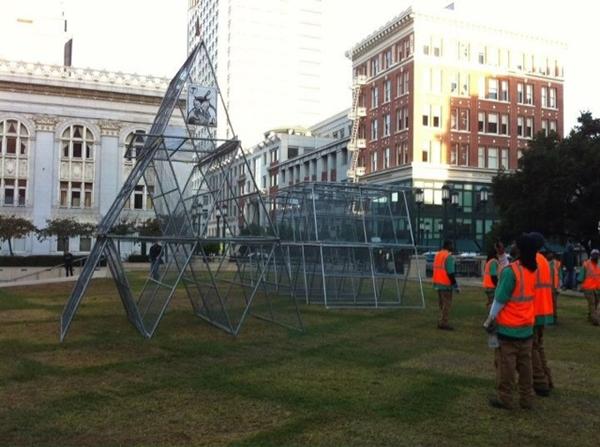
Duchess Says - "Time to Reiterate"
A.Dd+ - "Genocide"
"Foxy..." he grumbled, as he watched his prey evade another elaborate trap. "She just stands there," he thought, fixing his ice-maker, waxing his skis, "eating the bait like she just found it there." Skiing in the desert, flying off a cliff, rocket shoes, moving boulders, this life is shit. "It seems sometimes like the universe wants me to fail," he thought, his face turned to soot from a backfired explosion, "I'll paint a pathway on a rock, and she can use it like a tunnel, but if I try to do the same, I break my nose. It's not fair." He walked back to his cave, feeling the pebbles beneath his feet, in the carved side of a barren rock face. There's no fucking food around here.
[Buy In a Fung Day T!]
[More free A.Dd+]
(image of the appropriated fences after the Oakland police action via @gonzoakland)
October 27, 2011
GILLIAN WELCH - MONTREAL, OCTOBER 25
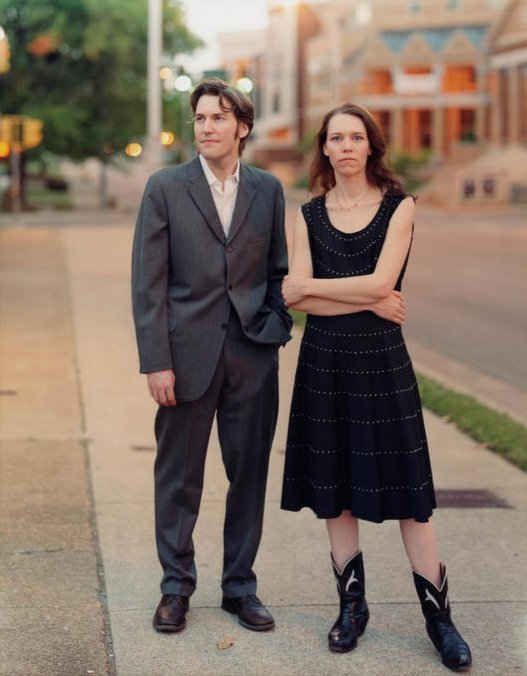
Gillian Welch - "Look at Miss Ohio" [buy]
Gillian Welch - "Revelator"
John Hartford - "In Tall Buildings" [buy]
Gillian Welch at Montreal's Le National, Tuesday October 25.
Gillian Welch came on stage a little after 8:30 pm. She wore cowboy boots and a skinny dress. Beside her, Dave Rawlings, in cowboy boots and a skinny suit. He held a little acoustic guitar. He wore a hat. Gillian Welch was carrying a guitar as well, a regular one, and each of them stood behind a microphone and then they played one of the best concerts I have ever seen.
A concert can be miraculous in several different ways. It can be about the moment, the particular-place-and-time, the way everyone rallies together during a blackout; it can be because something is happening in the interior of the musician on stage, a private stirring; it can be the hometown comeback or the faraway debut. This concert was a faraway debut - Welch's first time in Montreal - but the show was not miraculous because of this. It was not miraculous because any of these things. Its miraculous-ness, its miracle, came from somewhere else.
Welch and Rawlings sang and played guitar. There was a little banjo, a little harmonica, two perfect minutes when Welch clogged to the side of the stage. That was all. No opener, two sets, three encores. 22 songs, but who's counting. You cannot imagine the warmth, the fragility, the tenderness of these two voices in harmony, united before you, wrote Le Devoir's Sylvain Cormier. No record can give this.
The miracle was this: wonderful songs, beautifully played. Musicians who have that trick of putting soul and want and ragged years into hands, voice, glint of eye. Showmen who raise the house slowly and then bring it down; who show us one treasure and then turn and show us another. They made it seem so simple. Most songs began the same way: turning to one-another, humming and strumming a bar off-mike, then there before us, songing. Welch strummed her guitar, picked her banjo; Rawlings' fingerpicking was filigree, until it wasn't, these decorations suddenly at the centre of the room. On most songs he had a solo, and these solos were whatever he wanted them to be. Short stories, meditations, blues; on "Revelator", the notes he played made the hair stand up on my arms, made my heart shake, heavy as anything I have ever heard, as Godspeed & Low & Neil Young with Crazyhorse, on that little acoustic guitar.
They would sing together, Welch's voice at the front, Rawlings in the edges, like smoke. Cormier is right: this sounds different live than on record. In recordings, Rawlings's singing seems somehow like shading, bolstering, a pretty support. In concert, they seem like one thing. Like the two colours of a mirror.
They played "One More Dollar", clear-eyed, "Red Clay Halo", jubilant, "Rock of Ages", grim and certain, "The Way It Will Be", slow and sad. They played June and Johnny Cash's "Jackson" and a gorgeous cover of John Hartford's "In Tall Buildings". They sang "Look at Miss Ohio" and we all sang along, full throated, without being asked for a thing.
They played so well. That was all they did. So well, they played.
Sometimes a miracle can fit in a small box, a box the size of a dictionary, where you keep your picks and capos.
(Two days later, Welch came down with laryngitis! Get well soon.)
---
Elsewhere:
Montreal's CKUT Radio needs your help. 90.3FM is the city's best station, based at McGill but meant for all of us. They play wonderful music and thoughtful conversations, promote community events and activism, and they'll teach anyone how to be a part of radio. It's a tremendous resource and a sort of faraway friend. If you can afford to, please, please, please donate. There are even patron give-aways: beautiful t-shirts, shoulder bags, coffee, vodka, train tickets, and tickets to Black Star or Suoni Per Il Popolo. Do it.
(photo by Mark Seliger)
October 26, 2011
Singles, Psycho, Etc.
The Jimi Hendrix Experience - "May This Be Love"
In the summer of 1960, Bosley Crowther's feelings about Alfred Hitchcock's Psycho were tepid. In a review in the New York Times, Crowther derided the film's pop psychology and pulp sensibility and assessed the acting as "fair". He did not hate the movie, but he didn't like it either. By December, he had made an about-face, arguing in the same paper that Hitchcock's masterpiece was among the ten best films of the year. So what happened?
It's not, I think, that he was drawn in by the gravity of a growing critical consensus that the film was a milestone. Crowther was not usually afraid to stand on his own. A few years later, he would be replaced as the Times' film critic, some say because of his unrelenting outspoken hatred for Bonnie and Clyde, another groundbreaking American movie that would eventually unite critics in celebration.
More likely, Crowther's Psycho schizophrenia came about because he rewatched the film and reconsidered his opinion; or perhaps more accurately, a different Crowther - one in a better mood or one inured to the potential shock of the new filmic possibilities on display - watched it for the first time and liked it right away.
When I watched Psycho for the second time, I couldn't believe my eyes. I had remembered the plot and the aesthetic well, but the overwhelming paranoia, the bleeding of tenderness into violence, the timeless brilliance of Anthony Perkins' performance - these were all totally new to me. Whether this was only a matter of mood or of a more profound shift, I can't say. Just as I can't say why, after I first watched Sofia Coppola's Lost In Translation, I emerged from the theatre exhilarated and proselytizing, whereas when I saw it again I thought it merely quite good.
Even as a ten-year-old classic rock aficionado, I was not an admirer of "May This Be Love". It seemed to me meandering and piecemeal (though I might not have used those words then), and continued to seem so until last week when I heard it in Cameron Crowe's Singles. While the film was much worse than I remembered, the song - wildly pretty, incoherent with romance - knocked me out.
Had I been forced to review "May This Be Love" upon its release, as Crowther was forced to review Psycho in the summer of 1960, I would likely have failed, as Crowther did, to fulfill a key part of my task: to guide readers to the pleasure in my subject. (And I don't just mean because I wasn't yet born.) Until last week, I couldn't hear that whenever Hendrix sings the word "waterfall" his band paints a waterfall with drums and bass. And I could not possibly have captured, because I could not perceive, the perfection of the final minute's guitar solo, the song's most perspicuous waterfall. But lucky for me, Said the Gramophone does not demand timeliness. I'm just now getting to Hitchcock and Hendrix; maybe next month I will write about Griffiths and Bach and Euripides. As for the new Bjork, give me twenty years. I'll get back to you.
[Buy]
October 25, 2011
Quiet Man

A crooked mouth like a painted picture, his face looked drawn in few and heavy strokes. A cigarette squint, a sunlit tilt, chin out and hair in the wind. Head pounding like a drum, he walked up to the site. The foreman came down off the scaffold, rubbed his hands on a rag. The night before was a blur, a bunch of pretty girls and a bunch of handsome men, all like mixed-up cut-outs from a kids' book. She had on his pants, and a loose tie, and he had huge curly hair and a nice pair of tits. It was all Texas Chasers and California Wasters, from seven to seven and sun to sun. It was a great time, an enormous time, that had the taste of ending to it many times over. Drinking has a way of making your appetite endless, making the horizon stretch out, it seems like the day will never come. But then it does, and you're down to your last smoke and you wake up next to a passerby, and the mirrors are calling but you don't know your own name. And you get to your job and your boss has to unhook himself from a safety harness to come talk to you. Has to climb down the scaffold and rub his hands on a dirty rag, and take a minute to squint at you, and then "Well? Should I fire you?"
John Prine - "Quiet Man" (live in 1970)
"I can't do nothing, 'cept write love songs." And the sound of a train, away in the distance, taking something to somebody somewhere.
[Buy The Singing Mailman Delivers]
(image by Daniela Sach)
October 24, 2011
NEVER LOSERS
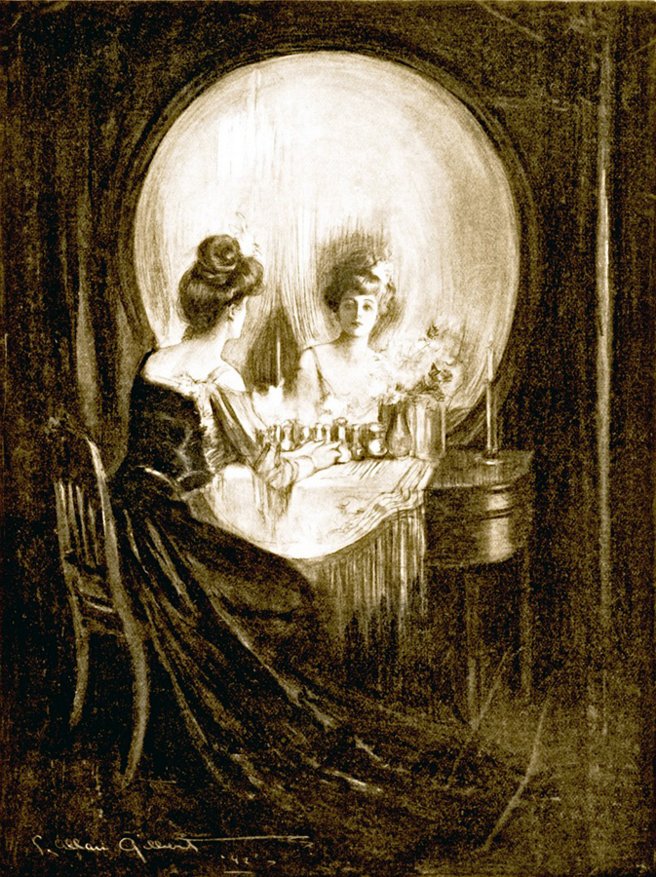
Grimes - "Oblivion". She 1 stares into the stars, night after night, with grim concentration, and nothing changes. It is more than frustrating - it is incendiary, infuriating. She is gifted, witchy, hexed. She is more than these pinpricks. She is the dreaming changer. Her movements leave trails of light. [Visions is due Jan 31 / buy other things]
Bonnie "Prince" Billy - "We Are Unhappy". She 2 needed new rain boots, so she took the bus to the hardware store. It was so cold that day. Even the asphalt seemed tensed, seized-up. She walked in silence. Tiny pinwheeling white specks, not snow, maybe dust, maybe ash, maybe mid-autumn pollen. At the entrance, the doors opened without touching. Wide bright aisles. Copper pipes, pine planks, rows of sturdy shovels. She, with the end of a smile. A lie of an end of a smile. She found the boots. She took a pair in her size. She sat on a bench with the boots before her and knew she wouldn't try them on, boots in a hardware store. They'd be fine. Why bother. She looked up to where a man was cutting a key, this careful drilling sound. He was patient with the item and the tool. And she was so weary. She had thought once that by going wearily into life, everything would eventually become okay, like an ice-cube melting into water. Like resting your head on a pillow. But now her branches had been bare for so long, and it was so cold outside. And when the man was finished with the key he would give it to someone to buy. [buy]
(image by Charles Allan Gilbert)
October 21, 2011
The Determinist Mouse
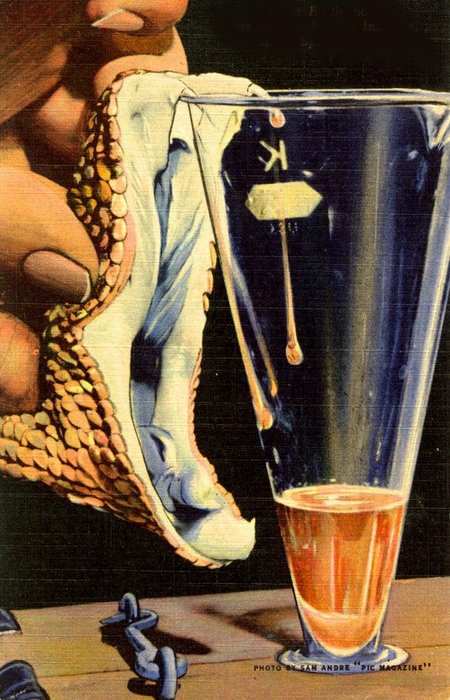
Bombadil - "One Whole Year"
Joel Brandt - "Lovers' Island"
- animal behaviours are determined by a combination of instinct and sense perception
- something's 'nature' is its instinct, its 'nurture' is the sum of its sense perceptions
- animal behaviour is therefore the expression of the sum total of experience up to just before the moment of that behaviour
- a mouse that makes its home in a garbage pile could not have made its home in anything else except that garbage pile
- an animal's behaviour is a necessary symptom of the state of the universe
- animals are conceived by a parent, and breathe
- music is conceived by a parent, and breathes
- music is an animal
- the way music sounds is a necessary symptom of the state of the universe
- if you do not like it, then like the mouse, the steam, the chlorine, the clouds, the city, the cardboard box, the leashless dog, you do not understand it
- there are many things I do not understand
October 20, 2011
MARKEDLY DISAPPEAR

Travels - "Lucky". In a building in the suburbs there is a machine that generates wisdom. It is a large machine, as big as two garages. One day, its caretakers assure visitors, such machines will be small enough to fit in our pockets. The machine's operation is simple: give it data (pdf format only), and wait. The data can be anything - random weather stats, holiday emails, photographs of family-members. The machine will make sense of this information. It will take what you have told it and respond with wisdom. Sometimes this wisdom is glib, like this is a two-garage fortune cookie: Trust your own experiences, it says. Or, True love isn't hard work. Other times the machine spits out reams and reams of pages, wisdom rendered as philosophical treatise. Sometimes it offers the video of a baby eating a watermelon from the inside out. The caretakers are still arguing over whether this was a bug.
Travels' song, "Lucky", is the response of a machine to the matter of a dead dog. Lucky died. He was a good dog. The wisdom generator has rendered its opinion in oooooohs, mantras, flea-bitten guitar. It is funny, short-haired, wagging. It chases its own tail & then stops. It is a wooded thicket and bright blue sky. It has listened to Yo La Tengo and the Fall. It will bark the bracelets onto your wrists.
[this song comes with Travels' new 7"; just $7, it comes with a 7"x7" varnished still from Travels' upcoming animated film. There are only 150 copies.]
Ólöf Arnalds - "Close My Eyes". Iceland's Arnalds delivers a very un-icy version of Arthur Russell's "Close My Eyes". Despite her nordic vowel-sounds, it has much more to do with Sandy Denny or Anne Briggs than with Nico. It's one of those songs that seems of two seasons at once - the sun-skimmed summer, the clear-skied fall. Covers are so often redundant; it is strange & gratifying to hear a verison of "Close My Eyes" that is similar to the original but newly beautiful. This is not a deconstruction, a dance-pop inversion. It's voice and acoustic guitar. Arnalds singing those slightly different shades of rose and blue.
[buy other albums / Ólöf Sings is out Nov 8 / or buy this song on 7"]
---
Go see these gigs in Montreal:
- Tonight: artful, sparkling rock'n'roll by Baby Eagle and the Proud Mothers. (Panda Bar)
- Tuesday, Oct 25: the inimitable Gillian Welch, though I believe this is sold out. (Le National)
- Thursday, Oct 27: very excited for the return of Blue Hawaii, long-quiet as they recorded and um Braids got famous. They are playing with (yes indeed) Braids and the young guitar sputniks in Parlovr. (Cabaret Mile End)
- Sunday, Oct 30: Eerie and bottomless folk music by James Irwin & Old Believer. (Casa del Popolo)
- Monday, Oct 31, Halloween: A Winged Victory for the Sullen, a ghostly side-project of Stars of the Lid. (Casa del Popolo)
(photograph is from this year's Louisiana floods, I believe)
October 18, 2011
Today, Guitars
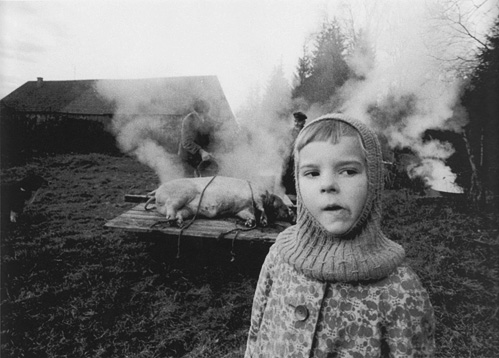
Arnold and Tommy were brothers and their babysitter was a floating head. Arnold was 6 and Tommy was 4, they had talked about getting married, they only talked of that in whispers, and their babysitter was a floating head. They shared reused gum, they had a shared collection of homemade kiln-fired figurines that looked like beige blobs with arms, and their babysitter was a floating head. They slept in bunks one above the other, and it was the creaks of the strained cheap wood that would keep them up at night, not the constant murmurs and mutterings of the babysitter, the floating head. She had long blond hair that draped down around her ears like two blond banners, barrettes like insignias, her face a great dictator, her mouth the speaking podium and her eyes two eternal flames. She murmured and floated listlessly around the house, in the dim glow of the night-lights. She would sometimes move the furniture with her chin or slam the fridge with her nose. When the phone would ring, even if it were mum n dad, she would just stare at the phone, either unable or unwilling to answer, and the boys would count the rings in their room. [Buy from SOS Records]
Doom Trumpet - "Oregon and Again"
The dawn is not a quiet thing. When a city comes to life it is a raging thunder in the air and in the ground. The cars and engines blow like children deliberately into the city's microphone, making that whooshing, rapping, cracking breaking sound all through the whole air, the cold earth shakes and it feels like it will never stop. But this guitar, this true and solid guitar, threaded through everything to make it feel sane, quiets it all, like seeing a face in the lines of a foreign map. [Site]
--
The Nâ Hawa Doumbia album that I posted about a while ago, is available today from Awesome Tapes From Africa. It is wonderful, and only 5$ for a digital version.
(image source unknown)
October 17, 2011
INTERPRETATIONS

Bernard Kabanda - "Nanankya". When someone tells you a story you do not understand, you are free to interpret it however you please. Understand it as the tale of two lovers, intersecting. As the story of the fox who met the sea. As a sage of wry rebels and their sundance kid. With a song like "Nanankya", it is not just the subject-matter you can adapt, imagine (and, admittedly, appropriate): it is the message. Make this song as wise or as inane as you please. Make it matter, or don't. Do what you will with the moment at 4:31 when the whole room bursts into applause. [Uganda's Bernard Kabanda released this song in 1999.]
TEEN - "Just Another". Iris pulls another lemon from the tree and tosses it over the wall. She has been doing this forever. It is a wonder there are any lemons left on the tree. On the other side of the wall, Iris knows, a boat is waiting in the water. Iris wonders whether it is full of lemons or whether it has sunk. [bandcamp]
(photograph courtesy of Michael P)
October 14, 2011
SO-SOCIETY
Parenthetical Girls - "Don't Give Up" (Kate Bush/Peter Gabriel cover)
"They're killing us," he said, tears in his eyes. Out the window, smoke rose in plumes like the earth were a leaking balloon. Pictures rattled off the wall, in a swept pile of glassy frames, showing scenes of accomplishment and meaningless, wild glory. A servant girl, not barely a year younger than the soldier himself, felt many things as she poured two glasses of wine, from the last bottle in the case. He had asked her to join him in a drink, and despite all that was happening, all the things that were so vast and more important than love, she thought maybe this was his way of sharing his feelings. "They haven't attacked the Mission District, they haven't even been watching it," she said handing him a glass, "That means they don't know about the Secrecy." The Secrecy. What an impotent thing that was now; the forces were closing in, there would be no stopping them, no matter how surprised they might be. "Yes," he said, into his glass, where he looked and saw a little piece of cork, floating in the red. "It's not over yet, sir. Have faith." He looked at her sad apron, at her tired eyes, tired from working double shifts as a nurse in the emergency ward, and he loved her. "Yes, faith is all we have at this moment. A simple belief in the utterly unreal."
Across town, and in a different language: a meager tent sat damply in the drizzle, two men inside, talking low. Already this mission had been talked to death, but still they talked. They talked of oppression, of secret poisons in the water system, of exploding SMS bombs, of cultural persecution. A people reduced to fear and anger and retaliation. A history that would not die, that would fight for survival. Steam from the hot tea filled the air and made them sweat. The tea kettle sat on a wobbly table, on a newspaper, making a wet ring. On an unfinished crossword that had only one answer written in: "PROTEIN". One man, the older of the two, sipped his tea and shook his head, unconvinced, "I understand all that. I do. But this is not the city to capture, not like this. They are too strong, they have forces we don't yet realize." The younger man, his uniform new and beaded with droplets from the steamy air, looked deep into the eyes of the older man and gave his speech that he had given a dozen times or more before, each with its own intensity, like he were constantly rehearsing for the next time he'd perform it, "My father...was murdered...on his way home from work...for the contents of his pockets...four crown and a postage stamp. We need to finish what we've started." He looked out the slit of the tent's door, the smoke rising in plumes like the earth were a well-cooked pie, and put on his preferred capper to the speech, "They're killing us."
--
This song was given as part of an EP called Demos for the Dreaming for people who pre-order Privelege IV: Sympathy For Spastics which is another in their series of limited-run (and truly fantastic) EPs. As usual, they will be individually numbered in human blood.
October 13, 2011
BARE AIR

OG Melody - "OG Realness ft Felicity Williams". At first click, OG Melody are something irony-laced and mildly heinous. After all, Isla Craig and Thomas Gill are not Original Gangster. They are young, white, Torontonian. This certainly doesn't put R&B off limits, but their duo is um called OG Melody. This song is um called "OG Realness". When Craig sings, "I call up my OG crew / mixing jams old school," the first image in my head concerns strawberry, pectin, mason jars.
Despite this first impression, "OG Realness" is exquisite, gorgeous and sincere. It is bone-dry bedroom R&B, a song of love and friendship that tilts and pivots. It is full of cut flowers. The production - restrained, funky - is a perfect balance for Craig's voice. There is a vogue in chillwave R&B, but OG Melody have little of that drowsy mire. This is not a sibling of the Weeknd or How to Dress Well. It does not even feel influenced by the-Dream. Instead, this is jersey organ, bare snare, careful squonking solo. Look to the Neptunes at their warmest, or Cody ChesnuTT, or perhaps a little of the Notwist. Or rather, stop looking. Despite their look-here wink-nod band-name, despite the look-here wink-nod song-name, "OG Melody" feels utterly unconcerned with looking over shoulders, with winks or nods. It is what it is, free as indian summer.
The Records - "Starry Eyes". Like running through a flurry of arrows, without any sign of the archers. Arrowheads gleaming, breathless zing, can't decide if it's jubilant bleeding joy or a death-defying sprint.
October 11, 2011
The Inflatable Garden

After it rains, in the white morning light that goes diagonal off the soft ground, the leaks begin to show. They puff out like little geysers. They spring up victorious like wet flowers. And of course the tree lies wilted in the middle of it all. A twisted mass with a rope swing somewhere in there. And somewhere in there young Marigold who should be swinging but instead is trapped. All the leaks must be sealed, carefully patched one-by-one, in order for the center tree to stand. Crawling on my belly it's my job to fix them, as I curse the squirrels and jaybirds. A spool of rubber patching the size of a vinyl record, tools fixed to a neck choker and stuffed in straps in my hat. After a drought like this, nice day after nice day, it can take a week to fix all these leaks. I slither humbly like a snake in the white morning light that goes diagonal, and I'll only be happy if the tree rises. [free]
Thomas Jefferson Slave Apartments - "Fire In The Swimming Girl"
In the version of the future that could only have the name We Went Underground, where internet real estate is the most profitable and corrupt business in the world, where an uplink is a meal and a hug is an open bracket. A strung-out, scarred and dusty Lifter, a hired pair of fingers in the realm of the flipper-handed, sits down at a terminal desperate for information. He types in every note, every word of this song, and it begins to form a picture, a photocopied old picture with someone holding their hands in their sleeves, an off-the-shoulder beauty whose pixelated face still couldn't be made out. It reads "insufficient data" and the Lifter slams his palm against the side of the screen. A pain shoots up his wrist and he goes for a beer in the shower. [Buy Bait & Switch]
(image)
October 10, 2011
RAVAGE

YAMANTAKA // SONIC TITAN - "Queens". A messenger arrives form the future, in a time-machine the size of a bachelor apartment. It flicks into existence on the lawn of the White House. It makes a sound like someone slapping someone else. The doors slide open, metallic, reveal a woman. She steps onto the grass. She is scared, glancing. She holds up her hand. In the years to come, this gesture will be endlessly analyzed. Was it a greeting? A warning? Was it just the sun in her eyes? But she raises her hand and this is the moment the snipers shoot. The woman is pinioned by multiple bullets, like she is dancing around a maypole.
YAMANTAKA // SONIC TITAN are an art-psych band from Montreal and Toronto who stand in heavy water, weeds to their hairlines; they scythe through fields with wielded guitars; they recall full summer, apocalyptic winter, the heaviest bits of Espers and Besnard Lakes, Led Zep with the Boredoms. They call it Noh-wave. This is a clever joke. Other jokes that have a bearing on Y//ST: wasps, sparks, jellyfish, ice. This music is available on a white vinyl 12" record and I imagine using this record as a plate, a moon, a circular saw through forests of birch.
---
Elsewhere:
Please read the beautiful, breathtaking speech by Slavoj Žižek at #OccupyWallSt, the best thing I have heard from this movement (and many times more sophisticated, yearning and true than the recent speech by Naomi Klein). An excerpt:In an old joke from the defunct German Democratic Republic, a German worker gets a job in Siberia; aware of how all mail will be read by censors, he tells his friends: "Let's establish a code: if a letter you will get from me is written in ordinary blue ink, it is true; if it is written in red ink, it is false." After a month, his friends get the first letter written in blue ink: "Everything is wonderful here: stores are full, food is abundant, apartments are large and properly heated, movie theatres show films from the West, there are many beautiful girls ready for an affair--the only thing unavailable is red ink." And is this not our situation till now? We have all the freedoms one wants--the only thing missing is the red ink: we feel free because we lack the very language to articulate our unfreedom.
I will be appearing as a judge at tomorrow's Literary Death Match in Montreal, alongside Jonathan Goldstein, Alexis O'Hara, Katrina Best, Byron Rempel, Jason Camlot and Zoe Page. This is also a launch for the new issue of Maisonneuve.
Later this week, I appear on Wednesday and Friday at the Montreal Improv Festival, as part of VENEZUELA.
October 7, 2011
The Most Of Our Generation, The Best Of Our Lifetime

Ahh, wind. Finally, wind. This song carries hawks, splays Moroccan flags, wrecks '97 speed boats, spreads nature's seed, float. It dries hair, dyed, cheeks tear-stained: dried. It's the thinking point of golfers, lick their fingers, point out the sky. It's callous, unplanned plane trip, it's a bumpy ride. The carpet's either hiding a rotting floor, or magic. Hear the agh!, the end replying, "Wind! Don't forget, me too!" [coming soon from Unfamiliar Records]
Lonnie Young, Ed Young - "Chevrolet"
A retaliation against a retaliation. [more Alan Lomax] (thanks, Benjamin!)
(image: Getty)
October 6, 2011
GOOD BYE, BERT JANSCH
Bert Jansch - "Courting Blues"
Bert Jansch - "Running From Home"
These songs are from Bert Jansch's debut, released in 1965. He was 22 years old.
Almost 50 years later, so much was still the same:
My love for Bert Jansch does not just stem from his guitar-playing, rightly celebrated. It is his singing - dry, level. His heart is hidden away - inside the chest of a man. So many songwriters show too much; for Jansch, the fact of the singing said enough. The words; the fingers on strings, like light on leaves; the melody that moves closer and then far away.
This music is not theatre, a performance for a crowd. You imagine Jansch alone in a room, singing to himself.
Bert Jansch & John Renbourn - "East Wind"
And then he could also do this, making an intricate house and unmaking it, like a wolf, blowing.
RIP.
[buy Bert Jansch / buy Bert and John]
October 4, 2011
Emphatic Empathy
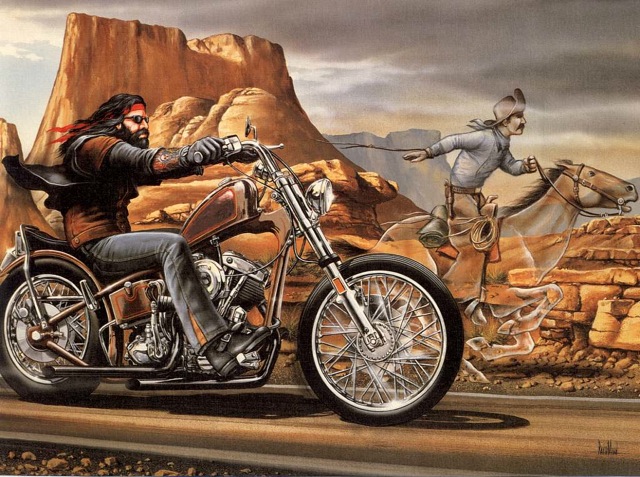
My hands are sparkling. My skin is separating from the bone, puffing out slightly, a gasp inhaled and held. My head is an arrow, my brain a direction, my mind a map and I can see X. Taste is shut off, touch is just clouds, smell is forgotten, don't matter, wind air. My stomach leans forward, to hear better, ears throbbing. My ribs perched like dark birds, trembling at the ready. I think I have an idea. [Buy]
The Soul Sisters - "Wreck a Buddy"
A boy of indeterminate youth checks the mail on his tip toes. He pulls out a wad of letters and makes the universal ka-ching sign for "yesssss!" and runs inside. He sneaks past his mother, chatting tea-side with her friend from down the street, and takes the stairs double-time to his room. He rips open the envelope addressed to Filipo Domenicano, in a deep, expressive cursive, and slides its contents from within. The paper smells of incense and is yellowed, most likely tired from the distance it had to travel. The letter is shorter this time; they've been getting shorter:
Filipo,
You drive me mad. Why do you not return my letters? I burn for you. Today at the market a man told me he wanted to cut my hair off to put on a statue. It was the closest I've come to coming in a year. I need you. I need you with me. I need you inside me--
Dennis stopped reading. He was losing his breath. He put a hand behind him to steady himself and accidently jostled his bookcase. His tin Jesus, from First Communion, came toppling down with a crash. He decided to pre-empt any attention: "I'M OKAY!!" He caught his breath, closed his eyes for a moment, opened them and kept reading.
Downstairs, his mother and her friend continued to have tea. [Buy]
October 3, 2011
UNWITTING MIRACLERS

Deloro - "Travelling Man". If there is an abandoned country, a man can walk the tracks, collecting rail. Imagine him, Old JR, his wagon full of rail. Imagine his nephew, Reed, riding beside. Reed has a plan: one day he will retrace the steps his uncle has taken, follow the same maps, and gather up all the pinewood ties. He will load his own wagon. Whereas Old JR's home is a thicket of leaning rail, rust-red, Reed's home will be a stately mansion made from weathered planks. He thinks of this as he rides in the wagon, chewing straw. Beside him, Old JR is walking. Old JR always walks. He does not look at his nephew; he already knows what he is thinking. When Old JR was a young man, he too imagined a house made of wood. He did not yet know the cruelty of the world, the enemies in the tundra. He did not yet know the value of a home, somewhere, on a hill, made of the same stuff as guns.
[Deloro is the singer Jennifer Castle, Dave Clarke & Paul Mortimer from $100, Dallas Wehrle from Constantines, and the artist Tony Romano. Their debut, with allegedly splendid artwork, is available now on Idée Fixe.]
Galen Hartley - "Raised Like a Glass". Biding time 'til the chorus, like the way we bide our time until the toast. Finally, we raise our glasses. Finally, the stream of wishes and hopes, cheer and fizz. Finally, that nimble guitar lick, handclaps, sloppy outcried "yeah!" This is a song full of swaggering slapstick, Hartley most of all, and while I am not always certain of the softshoe, I am certain about the messy clink of that chorus.
[Galen Hartley will release Good Dreams at Montreal's Inspecteur L'Epingle on Thursday Oct 6 / Buy or listen at Bandcamp]
---
Elsewhere: Adam & the Amethysts skinny-dip through the video for their exquisite song, "Dreaming" (NSFW). Catch their Montreal record launch at Phonopolis Tuesday night - 6pm.
October 1, 2011
BLED TO WHITE

The statue talked. It looked at me and said: "I've cut the world." It was a parkette, a measly patch of grey-tipped grass on Severin and Kiln, that had a little gravel-bed bench, a few unwild flowers, leant like tired mannequins, and this statue. Sir Morgan Plank, Count of Regent Grand and its surrounding territories. All it said beneath his name and station was a one-line description of his life: "responsible for the swimsuit and the plea bargain". The swimsuit and the plea bargain. I read this and wondered which came first. But as I sat with my egg salad and salt drink, on lunch from my occupational happenstance some would call a 'job', I looked up at the patch of sky left kindly by the scrapers and thought about if I sat here all my life, like this grey-tipped grass and these blue-eyed flowers, if I would last longer than a couple of weeks. And then it spoke. "I've cut the world," it said, clear as the bell in the unseen church that rang at 4 each day. The pigeons all looked in unison. I stared blankly at the face of Sir Morgan Plank, creator of trunks and ratting out your friends, with his concave pupils and his raised right hand, and said, "Pardon?" but of course he didn't reply. I took it as a sort of apology. How lucky, I though, this ghost. At least he has an outlet. [site]
(abandoned WWII fort via Photography served)